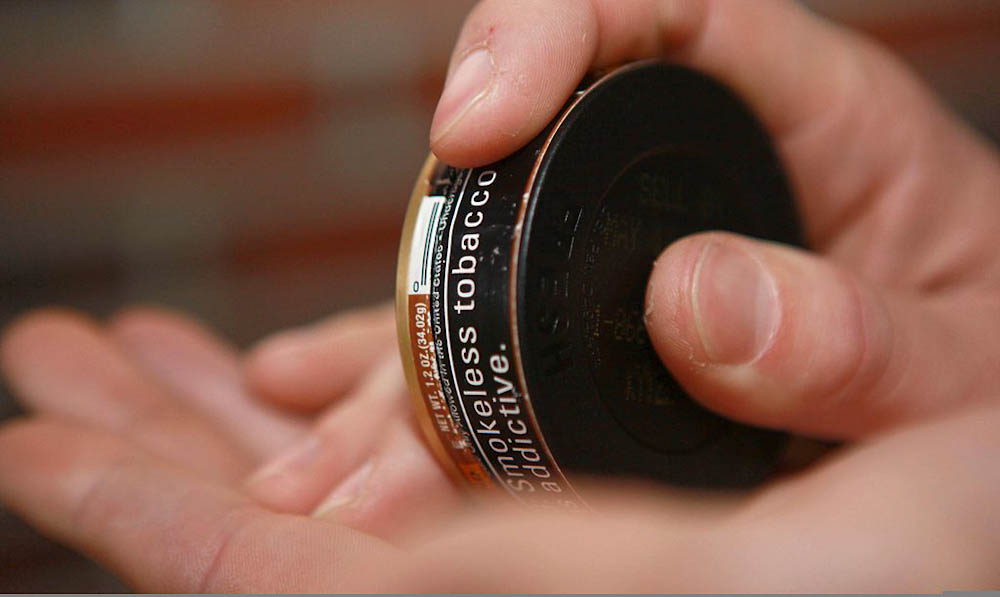
Often associated with professional athletes, smokeless or chewing tobacco is a major risk factor for several cancers, including oral, esophageal, and pancreatic cancer. While “chew” and “snuff” won’t be making their way to ballparks in Boston this baseball season, thanks to a citywide ban at all professional and amateur sporting venues, the habit is addictive and can be as difficult to quit as smoking cigarettes.
“Chewing tobacco is most commonly connected with cancers in the oral cavity, which includes the lips, floor of the mouth, area between the cheek and gums, the roof of the mouth, and the tongue,” says Guilherme Rabinowits, MD, a medical oncologist in Dana-Farber’s Head and Neck Oncology Program. “Tobacco, of all kinds, is the most common preventable cause of death.”
Whether it’s chewing tobacco or cigarettes, the quitting process is the same, says Rabinowits, as the addictive factor in both is nicotine. Many patients already diagnosed with cancer, oral or otherwise, may feel like it’s too late to quit, but continuing to smoke or chew tobacco during treatment can decrease the chance of curing the cancer. It can also increase the risk of treatment side effects and of developing secondary cancers.
The Centers for Disease Control (CDC) recommends following the START method to quit smoking or chewing tobacco:
- Set a quit date within two weeks
- Tell your family, friends, and coworkers about your plan to quit
- Anticipate and plan for challenges you may face
- Remove tobacco products from your home, car, and work
- Talk to your health care team about quitting so they can provide guidance and resources.
Cancer may also cause anxiety for many patients, which can lead former tobacco users and recent quitters to resume the habit. Speaking with a therapist, a member of your care team, or a tobacco cessation counselor can help. Advice from health care professionals is also available in-person at CVS Minute Clinics, and via phone from the National Cancer Institute Smoking Quitline or Massachusetts Smokers’ Helpline.
“The combination of cessation counseling and nicotine replacement therapy drastically increases the chance of people successfully quitting tobacco and remain abstinent,” says Rabinowits.
